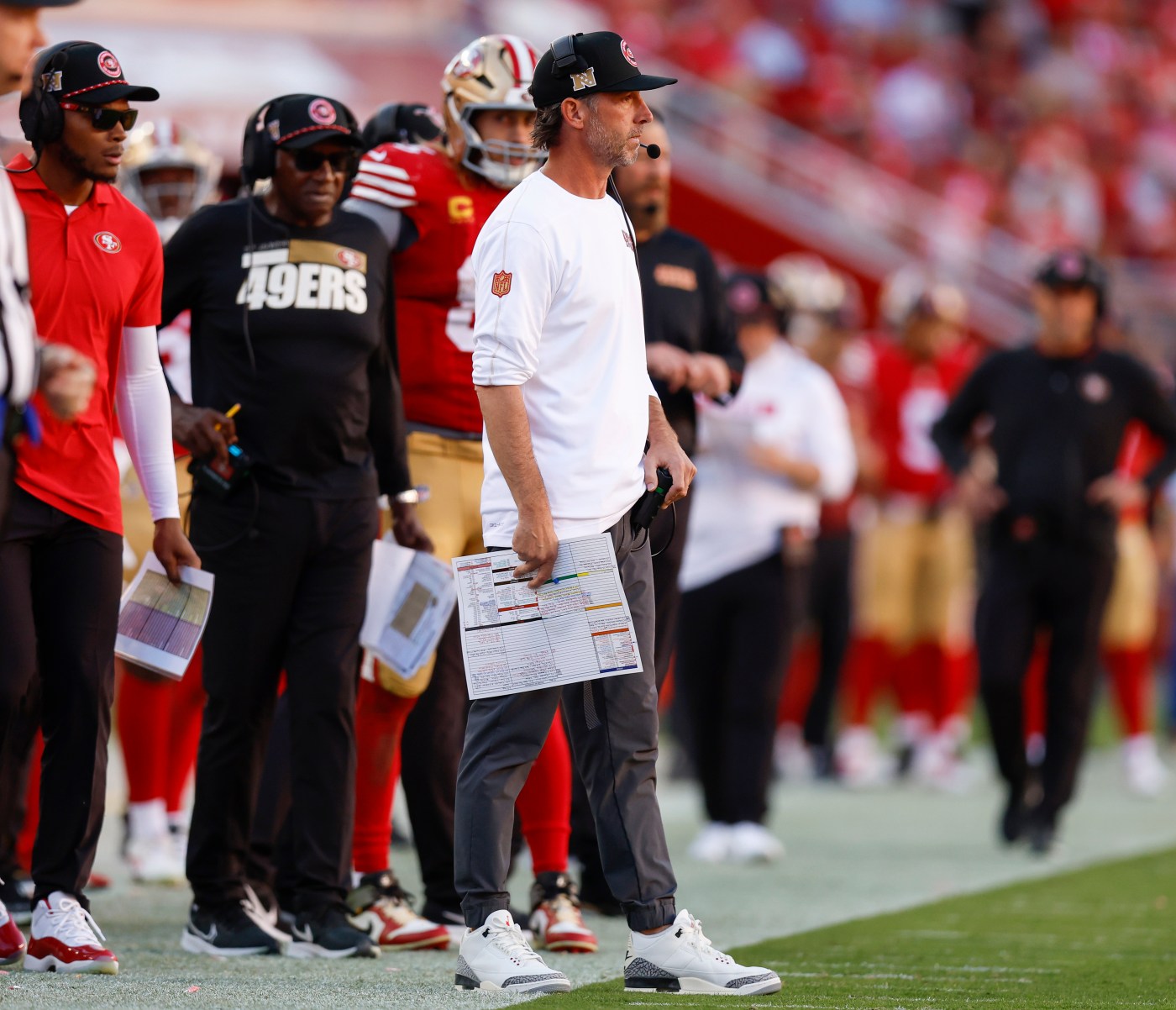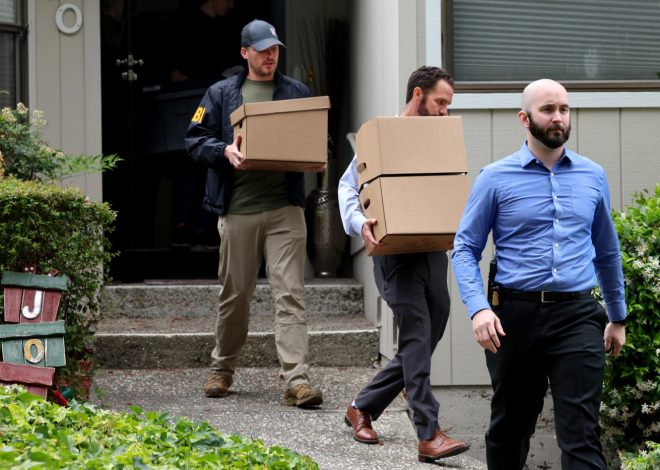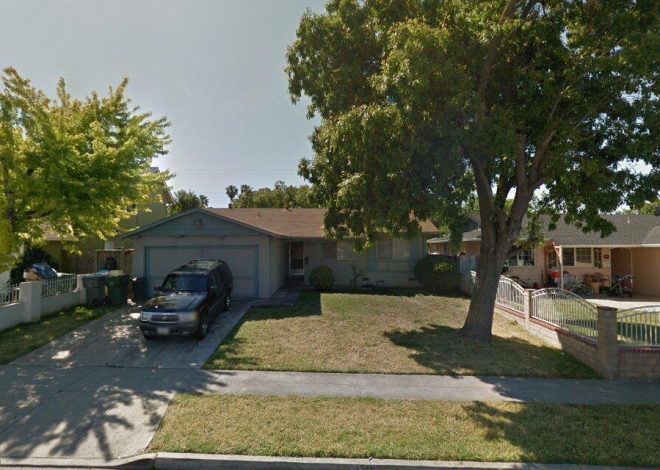
Kurtenbach: Kyle Shanahan played not to lose — so the 49ers lost
SANTA CLARA – There are so many reasons the 49ers lost to the Chiefs on Sunday. Too many reasons to count, perhaps.
And frankly, this reason seems trivial compared to Brock Purdy’s three interceptions, the Niners’ defense’s failure to stop Patrick Mahomes on third down, and the lopsided mismatches that Kansas City boasted on both lines of scrimmage.
But it’s also an issue that has plagued the Niners for years. It doesn’t seem to be getting any better.
Sunday was the biggest contest of the 49ers’ season to date. It was circled on the calendar the moment the schedule was released. A rematch of the heavyweight title match last season, and the champ was coming to town. The stakes might not have been the same, but this was anything but “just another game” for the Niners.
And yet Kyle Shanahan treated it like he treats all games: He played not to lose.
So the 49ers lost.
San Francisco 49ers’ Deebo Samuel, left, talks head coach Kyle Shanahan on the sidelines during a game against the New England Patriots at Levi’s Stadium in Santa Clara, Calif., on Sunday, Sept. 29, 2024. (Nhat V. Meyer/Bay Area News Group)
Related Articles
Mahomes, Kansas City might have delivered a knockout blow on the 49ers
Travis Kelce praises SF 49ers defense,’ Patrick Mahomes talks Collins
49ers Studs and Duds: Brock Purdy’s disaster game adds insult to injuries
Kurtenbach: It’s only Week 7, but the 49ers’ season will be defined against the Chiefs
Kurtenbach: The ideological battle at the heart of 49ers-Chiefs
Again, it’s only one entry on the laundry list of San Francisco transgressions, but an error in fundamental philosophy — one that has been known for longer than Shanahan has been the Niners’ head coach — is so much harder to fix than anything Purdy or Fred Warner did against the Chiefs.
Because I’m not in the meeting rooms (and no one wants to give me great second-hand accounts of what is happening in those rooms), I try to provide deference to Shanahan and the 49ers coaches when it comes to play calling and scheme.
But situational football isn’t nearly as complex. And when faced with binary decisions to be aggressive or be conservative in big situations — fourth downs, end-of-half situations, and two-point conversions — Shanahan almost always opts for the latter.
It’s the trademark move of an ideologue. Shanahan has a script in his mind on how he will win games. And far more often than not, since 2019, he’s been right.
However, that level of confidence in his plan coincides with a deep discomfort with risk.
Some coaches have a devil-may-care attitude. They have fun calling a game. This is an intellectual exercise for Shanahan — he wants to keep the devils at bay.
As such, Shanahan would never do anything like Andy Reid did at the end of the Chiefs’ first possession Sunday: he faked a punt.
It failed — the Niners had it sniffed out and left their first-team defense on the field. Still, it highlighted the aggression that the Chiefs — a team still at the vanguard of scheme — play within all phases of the ball. They play to win — by any and all means necessary. Kansas City will always keep their foot on the pedal to make that happen.
San Francisco 49ers head coach Kyle Shanahan talks with Kansas City Chiefs head coach Andy Reid following the Chiefs’ 28-18 win at Levi’s Stadium in Santa Clara, Calif., on Sunday, Oct. 20, 2024. (Nhat V. Meyer/Bay Area News Group)
When I say that Shanahan has never run a fake punt, I mean it literally. The one fake punt this team has run (called back by penalty) was when punter Mitch Wisnowsky, on his own accord, made a run for a first down.
Shanahan speaks of such tactics with an open disdain. It’s beneath him and his team.
“You’d like to build a team to where you don’t feel you have to… rely on something like that to get a win. I like to feel that you can do it between the offense and defense of just beating someone,” he said earlier this month.
“I don’t like to trick people into winning the game,” he said last January.
But it’s not beneath Reid, who is arguably the greatest coach in NFL history. Isn’t that strange?
San Francisco 49ers head coach Kyle Shanahan speaks at a news conference July 24, 2024, in Santa Clara, Calif. (Dai Sugano/Bay Area News Group)
Related Articles
49ers’ Brandon Aiyuk done for season with torn ACL
49ers report card: Punchless offense, porous run defense key another loss to Chiefs
What the 49ers said after losing to the Chiefs
Ricky Pearsall makes NFL debut exactly 50 days after being shot
Mahomes, Kansas City might have delivered a knockout blow on the 49ers
Let’s be clear: Reid and his staff worked over Shanahan and his coaches on Sunday. Yes, the Chiefs have better players, but the Niners were favored in Las Vegas heading into the game — it wasn’t that big of a mismatch. And yet, the difference in mindsets from the guys wearing headsets made what should have been a more interesting game another Kansas City blowout win.
The Niners, it seems, could have used a trick or two.
They certainly could have used an extended drive on the third possession of the first quarter, but they opted to punt on a fourth-and-1 from the team’s own 41-yard line.
The call to punt isn’t egregious in itself. Ben Baldwin’s Fourth Down Decision Bot, an analytical model that attempts to quantify the values of winning such calls, thought the Niners should have gone for it, but it was close to a 50-50 call. Given plausible deniability, Shanahan, of course, opted for the conservative route.
But the decision also set a tone for the game. Kansas City, again, was playing to win. Shanahan had an opportunity early to match that temperament. He declined.
You have to believe that Reid and the Chiefs noted that. You have to imagine that they loved the decision, too.
So the Chiefs kept pushing. The Niners kept avoiding risk.
It happened again at the end of the second quarter. The Niners had driven from their own 10-yard line to Kansas City’s 5 as the clock ran into the final minute. Kansas City — up 14-3 — was going to receive the second-half kickoff, so the Niners needed to score a touchdown to keep the pressure on them.
And facing a third-and-1 with no timeouts remaining, Shanahan opted to run the ball up the middle.
Even if the Niners had gained a first down on the play, the clock would continue to run. Unlike an incomplete pass, which would have stopped the clock, the only viable outcome of the running play would have been a touchdown. That outcome didn’t come to pass — Jordan Mason was stuffed for a two-yard loss — and the Niners had to rush out to kick a field goal.
Mason had run four times for five yards before that play. Still, Shanahan ran the ball — the conservative option, as it would set up a field goal as time expired — with a chance to make the score 14-10 going into halftime.
Of course, I’m presuming that had the Niners reached the end zone, they couldn’t have gone for two down five points, even though it’s the smart math decision.
I can safely presume that, though, because when the Niners did score a touchdown in the third quarter to make the score 14-12, Shanahan did not go for two.
If you can find a PAT decision chart — a tried-and-true rubric for when to kick the extra point or go for two — that says to kick when down two, please email it to me. I couldn’t find one because being down one point in the NFL— a game decided by threes and sixes — makes no sense.
Bemoan analytics in sports all you want. I might even agree with you on some points.
Then again, games are still scored with numbers, so arithmetic does matter in these contests.
And unless the NFL recently adopted the Canadian Football League’s “single” or “rouge” rule, Shanahan’s decision to send out just-signed kicker Anders Carlson to try to make the score 14-13 is indefensible.
The football gods justly cursed Shanahan’s decision — Carlson clanked the kick off the left upright.
San Francisco 49ers’ Anders Carlson (41) kicks a field goal against the Kansas City Chiefs in the first quarter at Levi’s Stadium in Santa Clara, Calif., on Sunday, Oct. 20, 2024. (Nhat V. Meyer/Bay Area News Group)
They’re just three calls — not one of them was a game-decider — but collectively, they show Shanahan’s reticence towards risk. It’s not strictly philosophical anymore, as we see with his do-no-harm approach to special teams (a tactic that causes a great deal of harm, it turns out). No, this is a practical issue.
It has and will continue to undercut San Francisco’s chances of winning far more than it will aid them.
But the only way to fell the Chiefs is to land big blows and knock them out.
Instead, Shanahan and the 49ers went into the ring with the champions and played as if they could win a 10-round decision on the scorecards.
You would have thought Shanahan would have learned this obvious lesson by now.
Instead, he doubled down on his brand of passivity. It’s one that borders on downright cowardice.
I doubt Shanahan will ever change, even though the lessons coming his way will be all the more acute the remainder of this cursed season.


